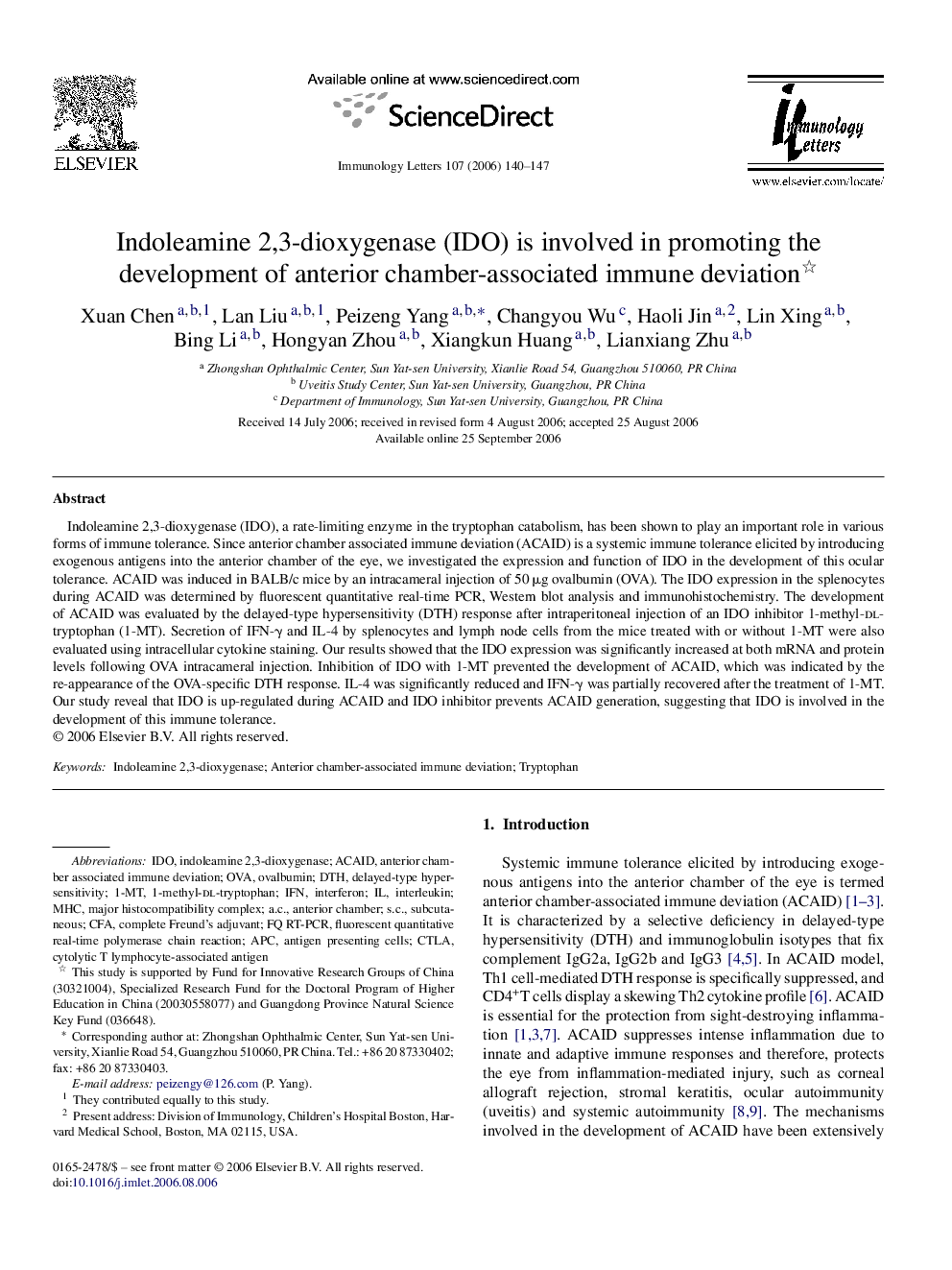| Article ID | Journal | Published Year | Pages | File Type |
|---|---|---|---|---|
| 3356410 | Immunology Letters | 2006 | 8 Pages |
Indoleamine 2,3-dioxygenase (IDO), a rate-limiting enzyme in the tryptophan catabolism, has been shown to play an important role in various forms of immune tolerance. Since anterior chamber associated immune deviation (ACAID) is a systemic immune tolerance elicited by introducing exogenous antigens into the anterior chamber of the eye, we investigated the expression and function of IDO in the development of this ocular tolerance. ACAID was induced in BALB/c mice by an intracameral injection of 50 μg ovalbumin (OVA). The IDO expression in the splenocytes during ACAID was determined by fluorescent quantitative real-time PCR, Western blot analysis and immunohistochemistry. The development of ACAID was evaluated by the delayed-type hypersensitivity (DTH) response after intraperitoneal injection of an IDO inhibitor 1-methyl-dl-tryptophan (1-MT). Secretion of IFN-γ and IL-4 by splenocytes and lymph node cells from the mice treated with or without 1-MT were also evaluated using intracellular cytokine staining. Our results showed that the IDO expression was significantly increased at both mRNA and protein levels following OVA intracameral injection. Inhibition of IDO with 1-MT prevented the development of ACAID, which was indicated by the re-appearance of the OVA-specific DTH response. IL-4 was significantly reduced and IFN-γ was partially recovered after the treatment of 1-MT. Our study reveal that IDO is up-regulated during ACAID and IDO inhibitor prevents ACAID generation, suggesting that IDO is involved in the development of this immune tolerance.
